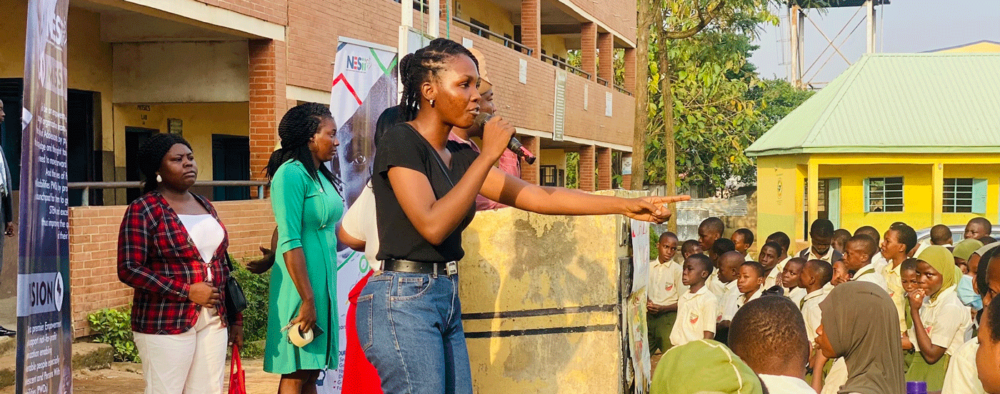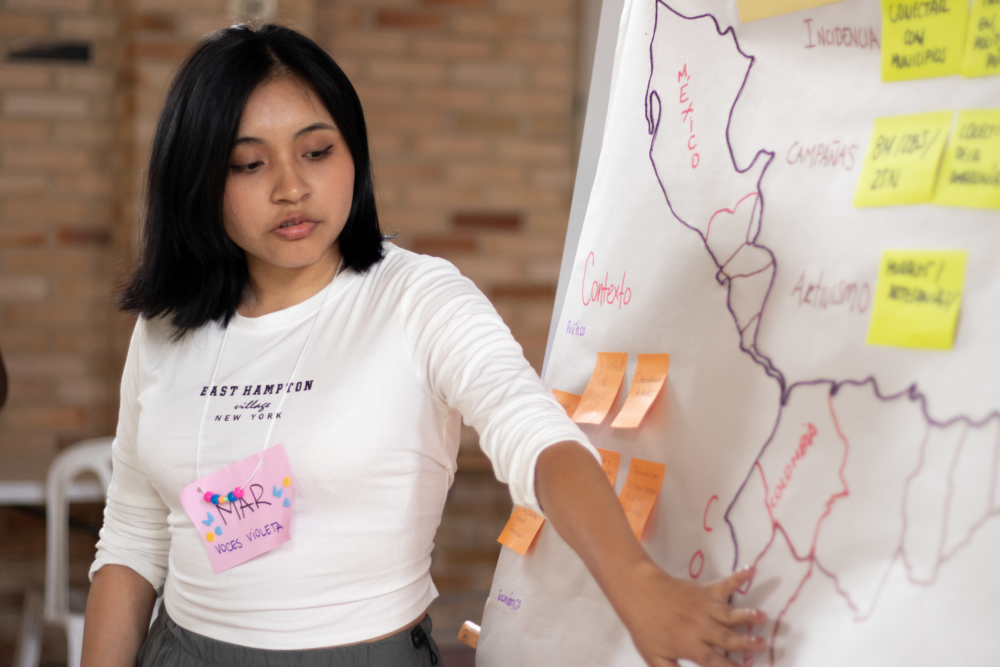
Poder da juventude
Poder da juventude
Nota do editor: esta postagem do blog também está disponível em espanhol.
Desde o final de 2022, a GFC convocou um grupo diversificado de 12 líderes de 12 países por meio de seu grupo estratégico Resourcing Community-Led Change. Esses líderes, chamados de Change Champions, incluem oito parceiros da GFC, dois membros do Youth Leadership Council e dois aliados de base. Os Change Champions representam grupos nascentes e organizações mais estabelecidas que trabalham em uma infinidade de questões que impactam o bem-estar de crianças, jovens e suas comunidades. Dos participantes, dois terços têm entre 18 e 30 anos, enquanto um terço tem mais de 30 anos. Esse processo único de design participativo intergeracional dentro da filantropia é fundamental para a prioridade estratégica da GFC de mudar o ecossistema de financiamento e fundamenta a defesa da GFC no que mais importa para os líderes comunitários e jovens.
Os Change Champions exploraram primeiro os desafios que enfrentam para acessar e sustentar o financiamento que lhes permite prosperar. Embora operando em contextos diferentes, todos encontraram barreiras sistêmicas dentro da filantropia e do desenvolvimento global – desde preconceito e falta de confiança até requisitos sobrecarregados e financiamento rígido que não se adapta às suas realidades locais. Com muita frequência, eles descobriram que realmente atender às necessidades da comunidade está em desacordo com o cumprimento das obrigações dos doadores.
Os Change Champions então exploraram quais mudanças são necessárias para que a liderança comunitária floresça. Eles reconheceram o poder das parcerias baseadas em confiança e do financiamento flexível para organizações lideradas pela comunidade – e querem torná-las a norma na filantropia.
Convidamos você a saber mais abaixo sobre cada um dos Campeões da Mudança e participar de seus apelos por mudanças na filantropia e no desenvolvimento global.
Oportunidades de palestras e entrevistas: Se você gostaria de entrevistar um dos Campeões da Mudança ou convidá-los ou ao GFC para falar, entre em contato conosco em press@globalfundforchildren.org.
“Acredito em financiamento de longo prazo porque ele vai além de apenas números, permitindo-nos criar mudanças reais e duradouras. Experiências vividas são pontos de dados cruciais que importam tanto quanto qualquer estatística. Ao priorizar o suporte contínuo, podemos construir um futuro que realmente valoriza o impacto na vida das pessoas.”
Anmol é o Coordenador de Saúde Sexual e Reprodutiva, Direitos e Justiça na A Fundação YP (TYPF). A TYPF é uma organização liderada por jovens que facilita a liderança feminista e baseada em direitos dos jovens em questões de equidade em saúde, justiça de gênero, direitos sexuais e justiça social. A TYPF reconhece os jovens como líderes habilidosos e conscientes da mudança social e garante que eles tenham as informações, capacidade e oportunidades para informar e liderar o desenvolvimento e a implementação de programas e políticas que impactam suas vidas.
“Espero que mais e mais doadores nos vejam como seus parceiros de longo prazo, em vez de implementadores de programas, e que nosso relacionamento sempre seja baseado em confiança. Parcerias de longo prazo ajudam organizações locais a crescer de forma saudável e a executar programas sustentáveis. Isso leva a mudanças boas e duradouras nas comunidades.”
Anna é a coordenadora do Centro Juvenil em Centro de Educação Informal “Diversidade”, que capacita adolescentes e jovens a fazer mudanças sociais usando métodos de educação não formal e criando um espaço seguro. A organização foca em jovens vulneráveis (meninas de regiões rurais, jovens LGBTQI, minorias étnicas) para amplificar suas vozes e incluí-los em processos de participação juvenil.
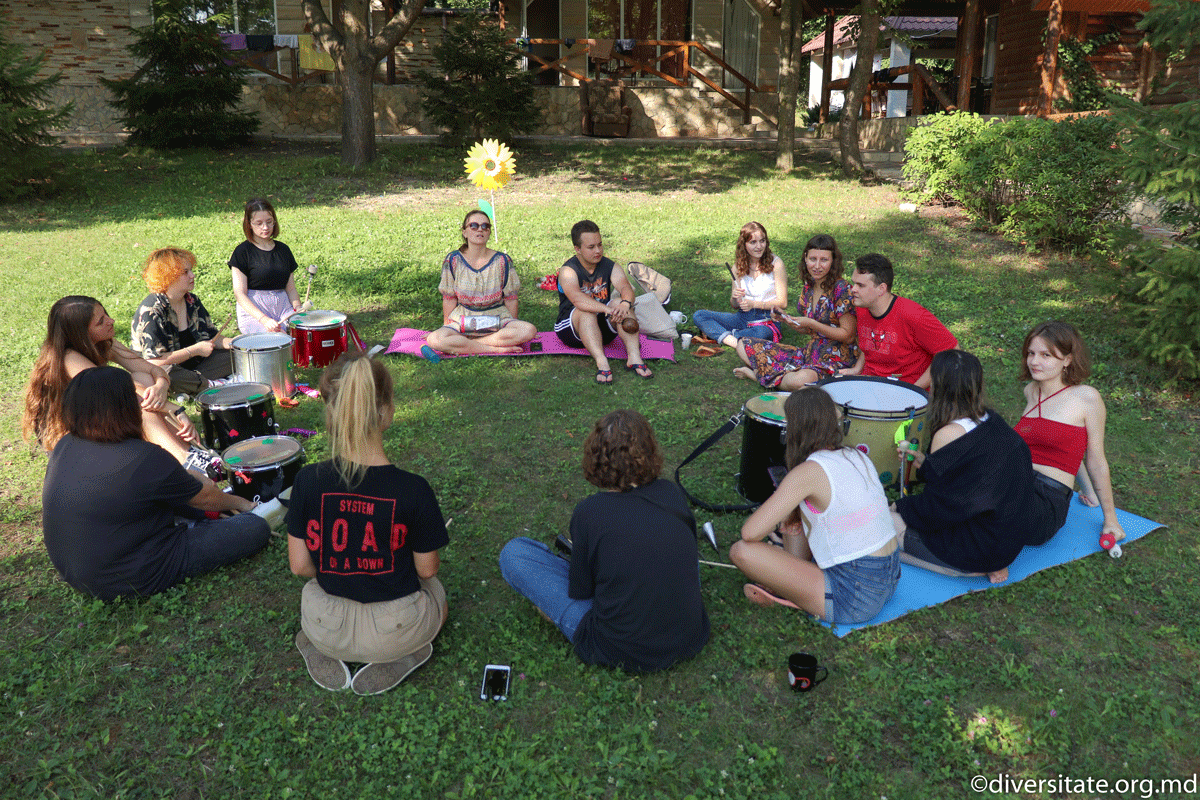
“Na dança da mudança, o financiamento flexível se torna nosso parceiro ágil, liderando o caminho através dos desafios e nos capacitando a prosperar.”
Chidinma é membro do Conselho de Liderança Juvenil do GFC e Diretor Executivo da Fundação Mildheart Care, uma organização sem fins lucrativos dedicada a promover mudanças positivas na vida de crianças e jovens de diversas origens sociopolíticas, transcendendo fronteiras religiosas e culturais. Seu objetivo é capacitar e equipar a geração mais jovem com informações e orientações abrangentes para tomar decisões informadas sobre sua saúde sexual e reprodutiva e bem-estar geral.
“O mundo mudou incrivelmente, então por que não mudar os processos burocráticos também? Os jovens estão prontos para mudar o mundo. Eles só precisam de apoio e de serem acreditados. O financiamento flexível vê o impacto real das histórias e da mudança da comunidade, e não apenas os relatórios ou números.”
Kimberly é a vice-presidente da Red de Jóvenes Artistas pela Justiça Social (Rede de Jovens Artistas pela Justiça Social), uma rede de jovens de diferentes departamentos da Guatemala que usam a arte como uma ferramenta de advocacy e empoderamento. Seus membros organizaram workshops, festivais, murais, treinamentos, debates e exibições para estimular o diálogo, aumentar a conscientização sobre questões que impactam os jovens e influenciar políticas públicas.
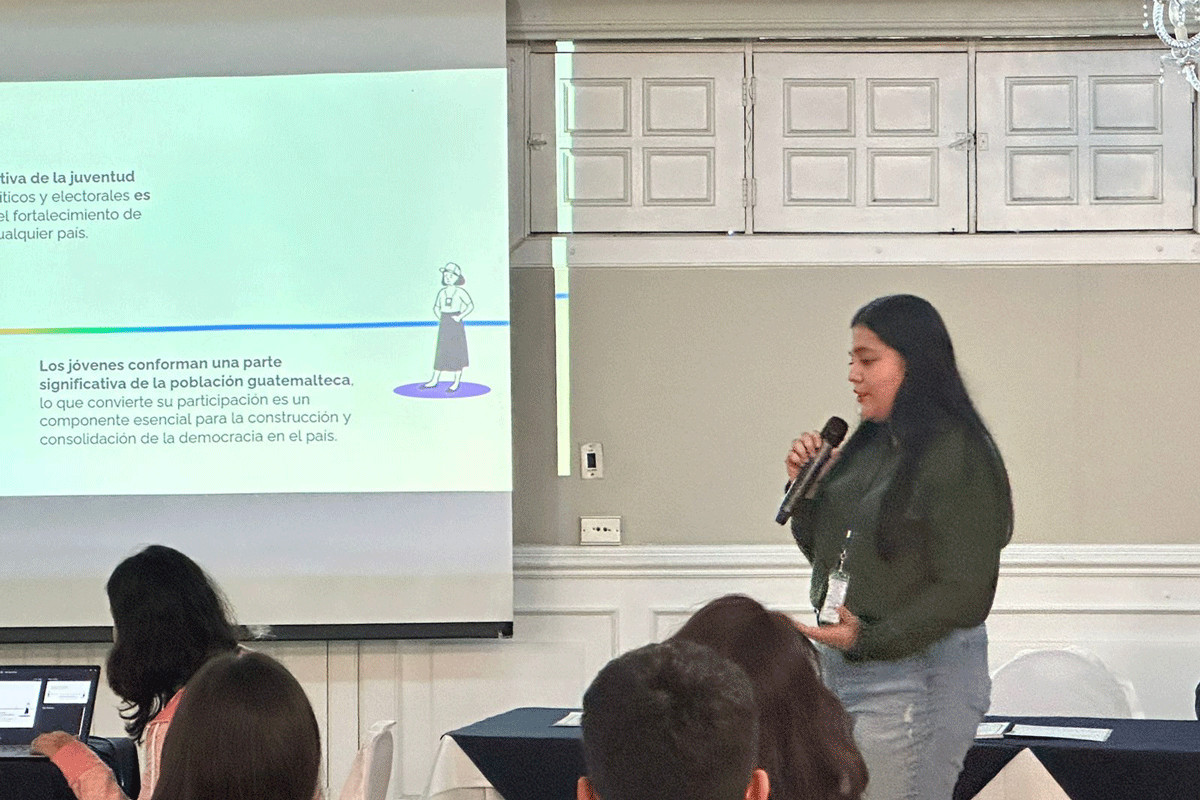
“A defesa de um ecossistema de financiamento flexível não só abre portas para maior inclusão, inovação e empoderamento dentro e fora da nossa organização, mas também ressalta a importância da intervenção consciente do conteúdo e sensível ao conflito. Acredito firmemente que há enormes recursos e potencial nas comunidades locais que devem ser aproveitadas e ampliadas por meio de investimentos e parcerias estratégicas”.
Lusine é a gerente de rede da Rede de jovens da linha de frente (FYN), que conecta e empodera jovens de comunidades rurais e de fronteira da Armênia. A FYN visa criar uma plataforma onde os jovens moldam ativamente as políticas e impulsionam mudanças positivas na sociedade, fomentando sua participação na construção de uma paz sustentável.
“Mudanças no ecossistema de financiamento são importantes para nós porque capacitam as organizações a responder efetivamente a quaisquer desafios imprevistos e ajudam a trazer inovação e resiliência em nossa missão de causar impacto.”
Wardah é o fundador e CEO da KhudKaar, uma empresa social que nutre o espírito de construção de comunidade em Layyah por meio de atividades culturais, programas de desenvolvimento de capacidade, assistência alimentar de emergência e arrecadação de fundos para a educação de meninas. KhudKaar também opera a KhudKaar House, um centro comunitário onde os jovens vêm para aprender habilidades digitais para encontrar emprego.
“Acreditamos no poder da ação coletiva e na capacidade de transformar vidas por meio da nossa dedicação e comprometimento com causas que realmente importam. Juntos, estamos construindo um caminho em direção a um futuro mais solidário e sustentável.”
Angy é o presidente e fundador da Mulheres Fortes (Mulheres Fortes). Localizada na zona rural do Peru, a Mujeres Fuertes se dedica ao empoderamento econômico das mulheres e à melhoria das condições de vida de meninas, mulheres e jovens em zonas rurais e periféricas. Por meio de programas e projetos, a organização oferece oportunidades educacionais, de liderança e de desenvolvimento de habilidades. Ela trabalha ativamente para promover o desenvolvimento sustentável, promovendo a igualdade de gênero, a participação comunitária e a independência financeira.
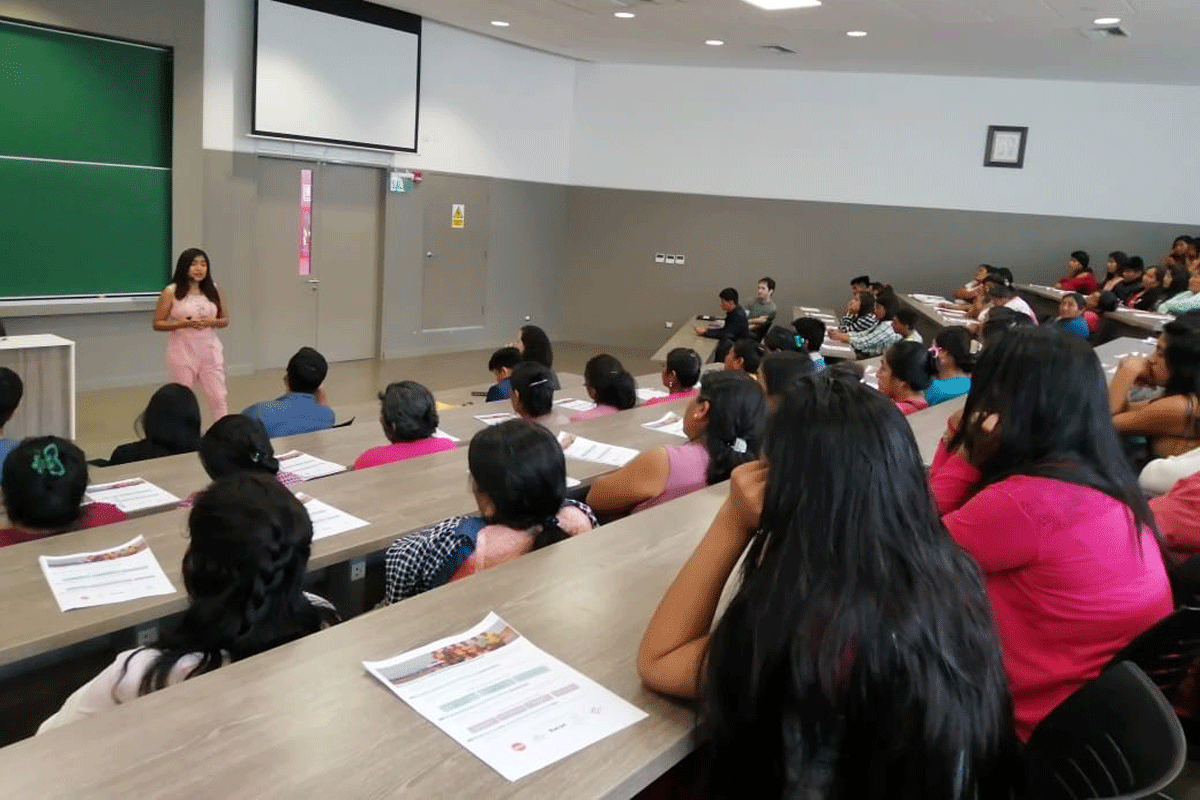
“O financiamento flexível visa permitir que as organizações validem, ajustem e gerem propostas de intervenção social mais específicas, oportunas e duradouras para as comunidades beneficiárias.”
Marcela é a Diretora da Fundação Dar Amor (Give Love Foundation) em Cali. A Fundación Dar Amor oferece programas pré-escolares e pós-escolares para aprendizagem suplementar, prevenção da violência e autocuidado, com foco no apoio a crianças vivendo com HIV e em diversos programas de prevenção para adolescentes.
“Um ambiente de financiamento focado em impacto, flexibilidade e sustentabilidade nos capacita a fazer mudanças reais para nossas comunidades.”
Teboho é o Diretor do Programa de autoajuda Women First, que apoia jovens mulheres empreendedoras para promover o empoderamento feminino, igualdade de gênero e redução da pobreza. Localizada em Maseru, a organização oferece treinamento em negócios e empreendedorismo, fabricação de joias e outros tópicos para capacitar jovens mulheres a se tornarem autossuficientes e sustentarem suas famílias.
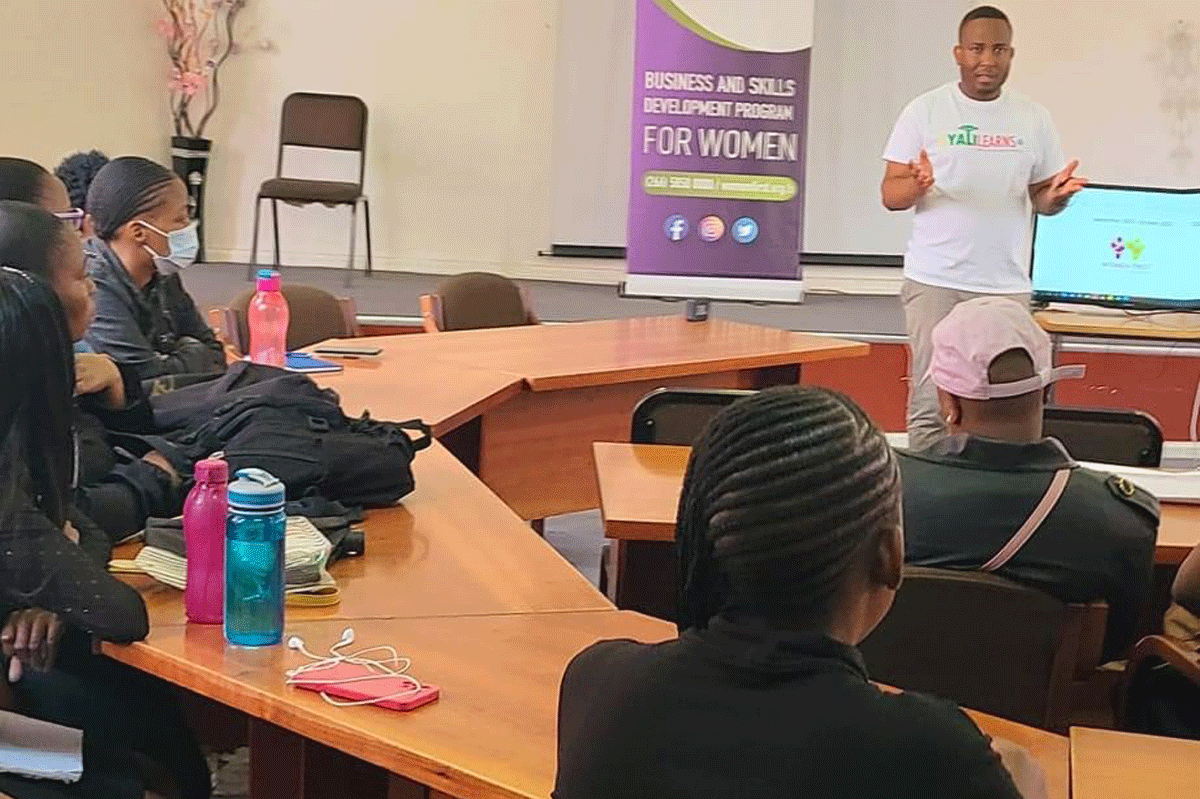
“Eu tive muita dificuldade em administrar uma organização na minha juventude. Comecei a iniciativa aos 25 e consegui a primeira bolsa depois dos 34. Eu teria oportunidades de ser voluntário, mas elas eram seriamente mal pagas. Mesmo que eu administre minha organização hoje e gostaria de orientar pessoas mais jovens, não há apoio suficiente para investir em mentoria. Nossos mecanismos de financiamento devem ser flexíveis o suficiente para apoiar o pagamento de estagiários ou as iniciativas de desenvolvimento profissional que temos dentro da organização. As iniciativas dos jovens também devem ser levadas a sério e financiadas. A arrecadação de fundos e outras iniciativas de capacitação para jovens também devem estar disponíveis.”
Samantha é a de Sinais de Esperança Confiança, uma organização sem fins lucrativos de base que defende os direitos das pessoas com deficiência por meio da disseminação de informações, da defesa de seus direitos e da capacitação para que se tornem cidadãos independentes que podem participar plenamente da sociedade.
“A flexibilidade no ecossistema de financiamento pode impactar significativamente a sustentabilidade de nossas organizações. O fácil acesso ao financiamento é crucial para a operação de nossas organizações e sua capacidade de atingir nossas metas para uma sociedade mais equitativa.”
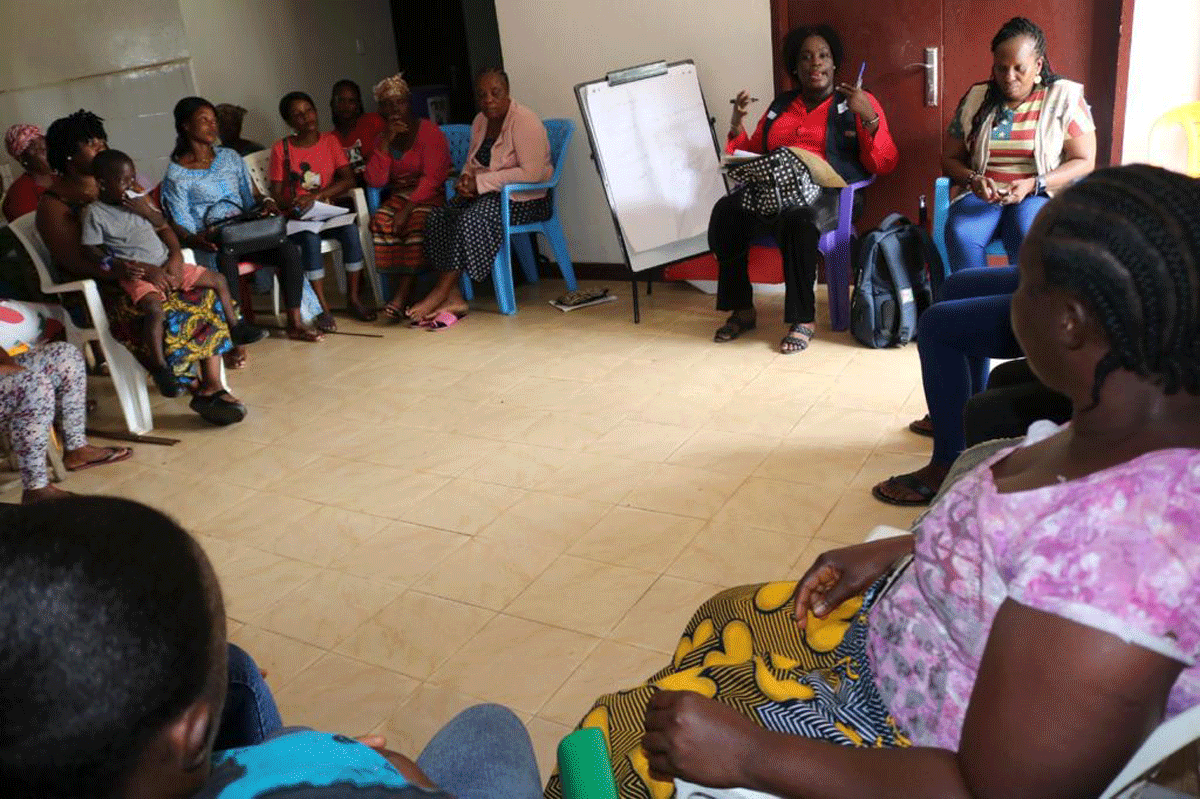
Salome é gerente de programa na Iniciativa de Saúde Comunitária (CHI). Com foco em adolescentes rurais, a CHI fornece espaços seguros para meninas discutirem questões que as afetam e educa meninas sobre direitos sexuais e reprodutivos, saúde e higiene, e os efeitos nocivos do casamento precoce e da mutilação e corte genital feminino. A CHI também advoga em nível nacional por melhor proteção para meninas em toda a Libéria.
Foto do cabeçalho: Chidinma discursando para jovens. © Mildheart Care Foundation.
